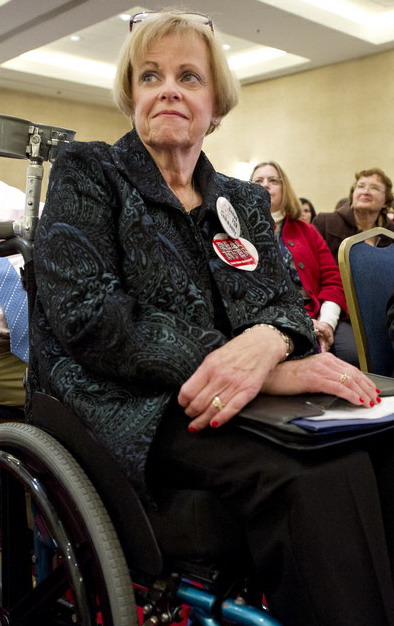Audit faults evaluations by Disabilities Department
By Sam Smith
[email protected]
The Maryland Department of Disabilities is not consistently providing timely annual eligibility reevaluations to beneficiaries of its $1.2 million Attendant Care Program, which reimburses personal attendant services for 157 individuals with severe physical disabilities, auditors found.
In the audit report released Monday, the Office of Legislative Audits stated that similar issues were found in a prior audit of the agency.
In a test of 10 program participants, auditors found that six of them were not evaluated until after the redetermination due dates and they were paid a total of $15,000 after the date of which their evaluations should have been completed.
In addition, the report stated there was no independent review procedure in place ensuring the reimbursement rate calculations were correct. The auditors found that three of 10 reviewed beneficiaries were given incorrect rates based on their financial situations. The incorrect rates were reimbursed for as long as 15 months and totalled $1,500 in unnecessary payments in the three cases.
A third finding states that seven of the 10 tested participants did not have a required signed attendant care agreement on file.
Agency proposes regulatory changes
DOD Secretary Catherine Raggio wrote in response that although most case reevaluations were initiated 45 days prior to due date, the department will propose a change in regulation that would require the redetermination process to be initiated exactly one year after the completion of the person’s last evaluation.
“Three out of the 10 took in excess of 100 days to complete while the other delayed
redeterminations ranged from 9-51 days,” Raggio wrote. “Two redeterminations were delayed in excess of 100 days were due to agency error. One redetermination was delayed due to a lack of response from the program participant.”
The auditors found that delay in the evaluation of the six individuals ranged from 32 to 279 days.
The department is also proposing a regulatory change to address the lack of signed attendant agreements on file where the participant must sign the agreement form upon first enrollment into the program.
“Until the regulations are revised, the program manager is stapling the agreement to the participant’s first timesheet after the redetermination process is completed as another method for ensuring a response,” Raggio wrote.
Reimbursement rates subject to staff review
Raggio wrote that in order for the the department to provide accurate reimbursement rates, it will assign a second staff member review of the rates calculated by the program manager. Rates are determined base on the individual’s income and household size.

MarylandReporter.com is a daily news website produced by journalists committed to making state government as open, transparent, accountable and responsive as possible – in deed, not just in promise. We believe the people who pay for this government are entitled to have their money spent in an efficient and effective way, and that they are entitled to keep as much of their hard-earned dollars as they possibly can.

